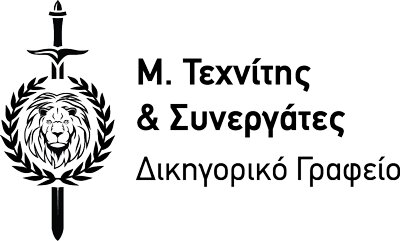Best Collaborative Law Lawyers in Rhodes
Share your needs with us, get contacted by law firms.
Free. Takes 2 min.
Free Guide to Hiring a Family Lawyer
List of the best lawyers in Rhodes, Greece
About Collaborative Law in Rhodes, Greece
Collaborative Law is an alternative dispute resolution process that allows parties, especially in family law matters such as divorce, separation, and child custody, to resolve their disputes outside of the courtroom. In Rhodes, Greece, Collaborative Law is gaining popularity as a non-adversarial approach focused on negotiation and cooperation. The process involves both parties working together with trained collaborative lawyers and, if necessary, other professionals like mediators or financial advisers. The primary goals are to reach mutually acceptable agreements, protect relationships after the dispute, and avoid the emotional and financial toll of litigation.
Why You May Need a Lawyer
People in Rhodes, Greece might require legal help with Collaborative Law for several reasons. Common situations include divorce or separation, arrangements for child custody, division of property, and spousal support negotiations. Businesses and civil disputes can also benefit from collaborative approaches, as litigation can be costly and time-consuming. A lawyer experienced in Collaborative Law helps clients understand their rights, ensures agreements comply with Greek law, and facilitates communication between parties. Having a legal expert to guide you through the process increases the likelihood of a fair, comprehensive, and enforceable agreement.
Local Laws Overview
Collaborative Law in Rhodes operates within the framework of Greek civil law, which emphasizes negotiation and mediation in family and civil disputes. The Hellenic Family Law reforms of the past decade have encouraged alternative dispute resolution methods, including mediation and collaboration, particularly in family matters. Participation in the collaborative process is voluntary, and both parties must agree not to litigate while engaged in collaborative negotiations.
In Rhodes, agreements reached through Collaborative Law must comply with Greek legal requirements to be enforceable. For example, agreements involving child custody need court approval to ensure the child's best interests. Lawyers participating in the process must be certified in collaborative practice or have adequate training in mediation techniques. Confidentiality is highly respected, meaning discussions during the collaborative process cannot be disclosed or used in future court proceedings.
Frequently Asked Questions
What is the main difference between Collaborative Law and mediation?
While both are alternative dispute resolution methods, Collaborative Law involves each party having their own legal counsel throughout, whereas mediation typically involves a neutral mediator and parties may or may not have lawyers present.
Is Collaborative Law suitable for all family law issues?
Collaborative Law can be applied to most family law issues, including divorce, child custody, and property division. However, it may not be suitable in cases involving domestic violence or situations where one party refuses to negotiate.
Can Collaborative Law agreements be enforced in Greek courts?
Yes, provided the agreement complies with Greek legal standards. For issues like child custody and support, a judge must review and ratify the agreement for it to be legally binding.
What happens if the collaborative process fails?
If the process breaks down, both collaborative lawyers must withdraw from the case, and the parties are free to appoint new counsel for litigation. This creates an incentive for all involved to genuinely attempt to reach a settlement.
Do I need a lawyer trained in Collaborative Law?
Yes, it is highly recommended to work with a lawyer who has specific training or certification in Collaborative Law to ensure the process is handled effectively and in accordance with the law.
Is Collaborative Law confidential?
Yes, all discussions and documents used during the process are confidential and cannot be used as evidence in court if litigation becomes necessary.
How long does the Collaborative Law process usually take?
The duration varies, but it is often shorter than traditional litigation. Many cases are resolved within a few sessions over several weeks to a few months, depending on the complexity of the issues involved.
What are the benefits of Collaborative Law compared to court proceedings?
Collaborative Law is less adversarial, often faster, less stressful, private, and can reduce overall legal costs. It allows parties to reach creative solutions that a court may not be able to impose.
Can other professionals participate in the process?
Yes, collaborative teams can include financial advisors, mental health professionals, and child specialists, all working together to support a mutually beneficial agreement.
Where can I find a Collaborative Law lawyer in Rhodes, Greece?
You can seek assistance from the local Bar Association, organizations specializing in family law, or Greek Collaborative Law groups. Many lawyers in Rhodes now list collaborative training or mediation certificates as part of their qualifications.
Additional Resources
- The Rhodes Bar Association (Dikigorikos Syllogos Rodou) provides information and referrals to qualified collaborative lawyers. - Hellenic Society of Family Law offers materials and practitioner lists for family law matters, including collaborative practice. - Greek Ministry of Justice offers official guidance on alternative dispute resolution and legal aid. - Local mediation centers often partner with collaborative lawyers and can provide support and information sessions. - Consult published guidelines and booklets on family law reforms for up-to-date legal frameworks and your rights in collaborative procedures.
Next Steps
If you believe Collaborative Law is the right approach for your legal issue in Rhodes, Greece, begin by consulting with a lawyer who specializes in this field. Prepare a list of questions and gather pertinent documents or information about your case. Ask the lawyer about their experience in collaborative matters, their approach to negotiations, and what support services might be helpful. You can contact the Rhodes Bar Association for a list of qualified practitioners. If the situation involves family matters, ensure your chosen lawyer has relevant family law experience. Consider whether you or the other party would benefit from involving additional professionals, such as financial or child specialists. Taking these proactive steps will help you navigate the collaborative process smoothly and maximize your chances of reaching a satisfactory and lasting resolution.
Lawzana helps you find the best lawyers and law firms in Rhodes through a curated and pre-screened list of qualified legal professionals. Our platform offers rankings and detailed profiles of attorneys and law firms, allowing you to compare based on practice areas, including Collaborative Law, experience, and client feedback.
Each profile includes a description of the firm's areas of practice, client reviews, team members and partners, year of establishment, spoken languages, office locations, contact information, social media presence, and any published articles or resources. Most firms on our platform speak English and are experienced in both local and international legal matters.
Get a quote from top-rated law firms in Rhodes, Greece — quickly, securely, and without unnecessary hassle.
Disclaimer:
The information provided on this page is for general informational purposes only and does not constitute legal advice. While we strive to ensure the accuracy and relevance of the content, legal information may change over time, and interpretations of the law can vary. You should always consult with a qualified legal professional for advice specific to your situation.
We disclaim all liability for actions taken or not taken based on the content of this page. If you believe any information is incorrect or outdated, please contact us, and we will review and update it where appropriate.









